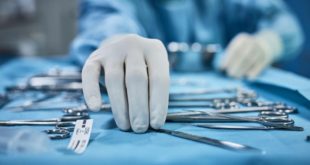Have you had trouble recovering mentally from surgery and anesthesia? Do you feel confused? Learn more from this answer to one guest’s comment.
To Dr. Dave: My daughter had a knee replacement. She lost a lot of blood and was in recovery 3 hrs, due to her blood pressure falling so low. Since then she has healed but she is not herself, no personality, very quiet, not like her at all. Can any of the procedures cause depression or mood change?
Martha
Martha,
I’m sorry to hear about your daughter’s difficult surgical experience. It sounds like you have unfortunately stumbled into an area of ongoing and incomplete anesthesia research: Post Operative Cognitive Dysfunction (POCD).There is a lot of research into the long-term effects of anesthesia, including the effects on the brain.
One problem is that it is quite challenging to design research studies that can tease out what effects are related to anesthesia, and which to the underlying surgical procedure. You don’t get anesthesia unless there is a reason. Without knowing much detail about the specifics in your daughter’s case, here is a list of what MAY be going on:
1. Residual effects of anesthesia, pain medicines. It can take up to several days to completely clear these medicines from the system. A knee replacement is a painful procedure. Depending on whether your daughter had a nerve block or epidural to help relieve the pain, she may be taking a considerable amount of pain medication in the recovery period. Morphine-like medicines can make a person drowsy and contribute to the cognitive symptoms you are describing.
2. Stress of Surgery It is sometimes lost on us that undergoing a major operation, like a knee replacement, can be very tough on the body. The body mounts a “stress response”, where hormone levels and metabolism is altered. These effects can last up to several months as the body slowly recovers.
3. Pre-existing Abnormal Mental Function POCD is more likely in older patients, those with high alcohol intake, a history of mental dysfunction/dementia, and those with a lower IQ (not a complete list). In these patients a decreased “mental reserve” can be unmasked by the combination of surgery and anesthesia. I would add for consideration the possibility of undiagnosed/ unrecognized depression that was present beforehand.
4. Post Traumatic Stress Disorder (PTSD) PTSD is a disorder than can develop when someone experiences or witnesses a traumatic event that he/she perceives as harmful to themselves or a loved one. What’s important is that person’s perception. A major, and potentially painful surgery, can cause PTSD.
While my list of potential causes can not pinpoint what is going on with your daughter, I hope that it begins to give you some idea about what may be going on. The good news is that POCD declines with time (3 months out, for example), especially among young people. But if you think there may be some PTSD or a pre-existing mental issue component present, it would be a good idea to seek professional help.
I pray for your daughter’s speedy and complete recovery. Let me know if there’s any other way we can help.
Sincerely,
Dr. Dave
 Anesthesia Myths: Get the Facts, Lose the Fear | Your #1 Anesthesia Resource in Simple language
Anesthesia Myths: Get the Facts, Lose the Fear | Your #1 Anesthesia Resource in Simple language




